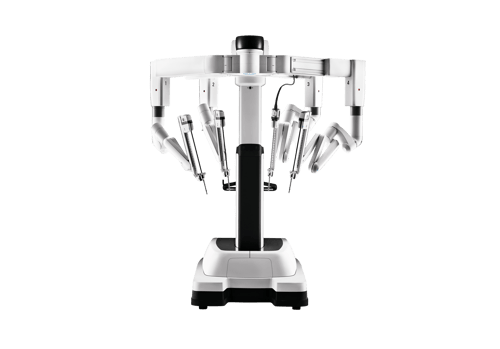
The Center for Thoracic Surgery at Care New England provides each patient with a unique patient experience, one that is tailored to fit the needs of the patient in their local community. Our center provides expert and personalized diagnostic and treatment services to patients with diseases and disorders of the lung including lung cancer, collapsed lungs, pleural effusions, molecular profiling, and emphysematous diseases. We also treat patients with disorders of the ribs/sternum.
Brigham and Women's Thoracic Surgery Associates at Care New England
Ambulatory Services Pavilion, First Floor
455 Toll Gate Road
Warwick, RI 02886
P: (401) 736-1092
Care New England Primary Services and Specialty Services Building
111 Brewster Street
Pawtucket, RI 02860
Our thoracic surgery team has office locations in Warwick, Providence, and Pawtucket. They are available to meet all of your thoracic needs from the basic to the most complex. Thanks to our clinical affiliation with Brigham and Women's Hospital in Boston, we can provide you with a team of thoracic specialists considered among the best in the region.

Diseases and disorders of the chest wall, or rib cage, as well as the sternum, can be related to injury or illness. Rib fractures, both acute and chronic, are common following injury to the chest. Although many broken ribs heal without surgery, our surgeons offer evaluation and treatment if needed, using rib plating, a pioneering technique for repairing broken ribs that can reduce pain and recovery time.
The surgeons at Brigham and Women’s Thoracic Surgery Associates at Care New England treat a variety of diseases and conditions, including:
Our services include a comprehensive evaluation and workup as indicated including, endoscopy, esophagus, pH testing, and manometry.
Cancer of the esophagus occurs when normal cells in the esophagus change into abnormal cells that grow out of control. Early on in the process, patients may have no symptoms or might have trouble swallowing, weight loss, pain, or burning in the chest area. Many of these symptoms can be caused by other conditions that are not cancer. If you have any of these symptoms, please discuss them with your physician or nurse. Our team will provide assistance and coordination of care with early diagnosis and treatment including surgery, chemotherapy, and radiation.
A lung nodule, or pulmonary nodule, is a small round or oval-shaped growth in the lung tissue. There are two main types of lung nodules, malignant (cancerous) and benign (non-cancerous). Benign lung nodules have a wide variety of causes including, but not limited to, infections, inflammation, and lymph nodes. They are often diagnosed on chest x-ray and CT scans. Diagnosis, work-up, and treatment will be guided by your thoracic surgeon.
Pleural effusions are often described as "water on the lungs." It is a build-up of fluid that can develop between the chest wall and the lung itself. Pleural fluid is normally produced by the body to lubricate the lining of the lung. Many medical conditions including pneumonia, congestive heart failure, and certain types of cancer can cause a pleural effusion. Treatment can include removing the fluid from the space (thoracentesis) and can also include surgical intervention and catheter placement. Management of a pleural effusion often depends on the etiology.
A lung transplant evaluation involves a complete, comprehensive, and detailed evaluation of a candidate’s medical and surgical history and involves several clinical tests and meetings with physicians and staff. We are happy to provide initial care and care coordination for patients and clinicians seeking information about the pre-transplant evaluation. Surgical procedures will take place at Brigham and Women’s Hospital in Boston
Brigham and Women’s Thoracic Surgery Associates at Care New England offers comprehensive testing and advanced treatment for patients with the mediastinal disease. The mediastinum is the area between the lungs, containing the heart, aorta, thymus gland, lymph nodes, esophagus, and the trachea. The mediastinum can be the site of cancerous and non-cancerous tumors, including lymphoma, germ cell tumors and teratomas, neurogenic tumors, thymoma, and thymic cancer. Sarcoidosis, a non-cancerous inflammatory disease, can also entail mediastinal lymph nodes.
Conditions in the mediastinum can be difficult to diagnose as the symptoms often resemble other diseases. Brigham and Women’s Thoracic Surgery Associates at Care New England’s team of thoracic surgeons have special training in the diagnosis and surgical management of mediastinal disease with the most progressive technology and resources available in order to provide the best quality care for patients.
Mesothelioma is a cancer that is complex and difficult to treat, and it, unfortunately, usually carries an abject prognosis.
The disease affects the outer lining of organs within the body, including the lungs, heart, and stomach, and well as inner wall of the body. Exposure to certain substances, such as asbestos, is closely associated with this condition, and the disease may not take form or affect the body until many years after.
Treatment for mesothelioma patients involves a multi-disciplinary approach. Several healthcare experts will need to contribute to a personalized treatment plan. Treatment usually includes
Depending on the type of mesothelioma, the procedures will be performed in the chest or abdominal cavity.
More than 225,000 Americans are diagnosed with lung cancer each year. There were 920 Rhode Islanders diagnosed in 2020; a rate  significantly higher than the national average. Treatment depends on the type and stage of lung cancer and may include one or more treatments, including:
significantly higher than the national average. Treatment depends on the type and stage of lung cancer and may include one or more treatments, including:
New innovations in care and treatment using personalized genetic information are available, including:
Our thoracic surgeons work closely with the oncologists, pulmonologists, and medical teams at CNE and are involved in the work-up and diagnosis of new pulmonary nodules and conditions in the chest. This includes the use of new technology and advanced endoscopic procedures, such as EBUS, to aid in diagnosis and offer less invasive options to conventional lung surgery.
Endobronchial ultrasound (EBUS) is a minimally invasive procedure that uses ultrasound and a bronchoscope to diagnose lung cancer, infections, and lesions in the lungs and airways. During EBUS, the surgeon is able to take tissue samples from the lungs and surrounding lymph nodes from inside the airway instead of having to perform surgery. EBUS is usually performed under moderate sedation or general anesthesia, and patients often go home the same day.
Electromagnetic navigational bronchoscopy (ENB) is a minimally invasive procedure that uses GPS-like navigation technology to create a 3-D map of the lungs and chest for obtaining tissue samples or targeting lung cancer treatment. It is used to access lesions (spots) in areas of the lungs that cannot be reached by traditional bronchoscopy. Using the 3-D map and a thin instrument through the bronchoscope, the surgeon can obtain precise tissue samples or insert radio fiducial markers to target radiation to lung tumors. This procedure may help find lung cancer at earlier stages. ENB is usually performed on an outpatient basis, so patients can go home the same day.
Common pathologies that surgeries are performed for are:
The types of surgeries performed are:
Brigham and Women’s Thoracic Surgery Associates at Care New England use the daVinci Xi robot for a minimally invasive approach to thoracic surgery. The Xi Robot allows for the surgeon to perform surgery using state-of-the-art technology in order to see in 3-D while in high-definition. The surgeon can see better, have better angles, and be even more precise in their work.
Surgeries being performed by the thoracic surgery team include lobectomies and mediastinal surgeries.

In addition to the areas of Cardiology and Pulmonary Medicine, Care New England Has a clinical affiliation with Brigham and Women’s Hospital in Thoracic Surgery. The physicians at Brigham and Women’s Thoracic Surgery Associates at Care New England are affiliated with Brigham and Women’s Hospital in Boston, and they provide care to patients in Rhode Island at Kent Hospital and at their outpatient office in the Ambulatory Services Pavilion on the Kent Hospital campus.
The Brigham and Women’s Thoracic Surgery Associates at Care New England offers comprehensive testing and advanced treatment for patients with diseases and conditions of the lung and airway, from more routine conditions to rare and complex diseases. We treat chronic obstructive pulmonary disease (COPD), tracheomalacia and emphysema, empyema and pleural effusion, pneumothorax/collapsed lung, and also specialize in tracheal and bronchial disorders, benign or cancerous.
Brigham and Women’s Thoracic Surgery Associates offers:
Through the Kent Hospital, Diagnostic Imaging Department chest x-rays and chest CAT scans are available. We also assist with the scheduling of:
Chief, Thoracic Surgery, Kent Hospital
Assistant Professor, Harvard Medical School Thoracic Surgery, Affiliated with Brigham and Women’s Hospital
Associate Surgeon, Division of Thoracic Surgery
Clinical Instructor, Harvard Medical School Thoracic Surgery, Affiliated with Brigham and Women’s Hospital
Dr. Pommerening received both his medical degree and general surgery training from the University of Texas McGovern Medical School in Houston. Dr. Pommerening’s clinical practice is focused on the surgical and multidisciplinary care of patients with both benign and malignant thoracic and foregut diseases. His clinical interests and specialties include minimally invasive surgery, diagnostic and interventional airway procedures, thoracic oncology, and advanced foregut surgery.
Learn More about Dr. Pommerening
Thoracic Surgery Physician Assistant
Kim Lamendola obtained her undergraduate degree from Boston College and graduated from George Washington University with a master’s in health sciences. She trained at Brigham and Women’s Hospital and worked there for 7 years in Thoracic Surgery prior to returning home to Rhode Island. Kim has been at Kent Hospital since 2015 and is currently the Lead PA in Thoracic Surgery and has developed extensive expertise in pre-, intra-, and post-operative care of the thoracic surgery patient. She loves living in the community she serves and is a relentless patient advocate.
Dr. Steimer is a surgeon within in the Division of Thoracic Surgery at Brigham and Women’s Hospital and a clinical instructor at Harvard Medical School. She practices at both Brigham and Women’s Hospital and Kent Hospital.
Graduating with a medical degree from the University of Kentucky, she completed her general surgery training at Baylor University Medical Center in Dallas, TX. Her cardiothoracic residency was completed at Brigham and Women’s Hospital in 2021. Her clinical interests include thoracic malignancies such as lung cancer, esophageal cancer and mediastinal tumors. She performs surgeries using minimally invasive techniques (through small incisions and a camera) which decreases pain and helps patients recover faster from surgery. She additionally performs ION robotic navigational bronchoscopy biopsies for lung nodules to help diagnose and stage patients with potential lung cancer. Her research is focused on optimizing surgical care for elderly patients and developing tools to detect underlying frailty.
Dr. Shemmeri received her undergraduate degrees from the University of Massachusetts, Amherst. She received a Doctor of Pharmacy from the Massachusetts College of Pharmacy and her medical degree from Ross University School of Medicine. She completed resident training at North Shore University Hospital Long Island Jewish Medical Center and a fellowship in cardiothoracic surgery at Albany Medical Center.
Dr. Shemmeri also completed a clinical and research fellowship in thoracic and foregut surgery at the Swedish Cancer Institute and Medical Center, a critical care clinical pharmacy residency at the University of Maryland Medical Center and a minimally invasive thoracic surgery fellowship at the Brigham.
Her clinical interests focus on minimally invasive thoracic surgery and foregut and her research interests include clinical outcomes in foregut, specifically achalasia and esophageal cancer.
Ariane Myrtle is an experienced Physician Assistant specializing in cardiothoracic surgery. She is a graduate of Quinnipiac University and brings over 15 years of clinical expertise from Rhode Island Hospital, and Brigham & Women’s Hospital. Ariane is skilled in both surgical assistance and critical care procedures. She provides comprehensive care from pre-op through recovery and is committed to excellence in patient care, education, and surgical outcomes. She has used her wealth of surgical knowledge and training to provide personalized care to each of her patients.
Gwendolyn Savory, RN, is the dedicated Nurse Navigator for the Thoracic Surgery team. With over 15 years of nursing experience across primary care, dermatologic surgery, and skilled nursing, Gwen brings a compassionate, patient-centered approach to her role. She holds a Bachelor of Science in Nursing from the University of Rhode Island and is licensed in multiple states. As the RN Navigator, Gwen supports patients throughout their surgical journey—from initial evaluation and education to postoperative follow-up—ensuring seamless communication and coordination across care teams. Her clinical expertise, particularly in triage, patient education, and care coordination, helps guide patients and families through complex care decisions with confidence and clarity. Gwen’s commitment to high-quality care, combined with her warm, collaborative style, makes her a valued member of our thoracic surgery team.
Copyright © 2025 Care New England Health System